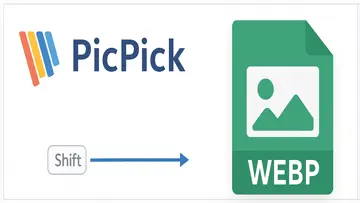Overview of GDAL
GDAL, short for Geospatial Data Abstraction Library, is an open-source software library that provides a wide variety of tools for translating and processing raster and vector geospatial data. Developed by Frank Warmerdam, GDAL is an essential tool for professionals in the fields of geography, cartography, GIS (Geographic Information Systems), remote sensing, and more. With its powerful capabilities, GDAL allows users to read, write, and manipulate geospatial data in various formats.
Key Features
- Format Support: GDAL supports a multitude of raster and vector formats such as GeoTIFF, Shapefile, KML, and many more. This extensive format support makes it an invaluable tool for users dealing with different types of geospatial data.
- Data transformation: The library includes tools for transforming coordinate systems, resampling, and warping raster data to align with different projections.
- Command-line Utility: GDAL offers a command-line interface (CLI) with various utilities that facilitate operations on geospatial data without needing to write custom code.
- API Access: Developers can access GDAL through programming languages such as C++, Python, and Java. This feature enables the integration of GDAL into custom applications.
- Raster and Vector Processing: GDAL provides capabilities for manipulating both raster and vector datasets, allowing users to apply various algorithms and processes to their data.
- Community and Documentation: With robust community support and detailed documentation, users can easily find help, tutorials, and guides to maximize their use of the library.
Installation Process
The installation of GDAL varies depending on the operating system. Below are some general steps for different platforms:
- Windows:
- Download precompiled binaries from the official GDAL website or use package managers like OSGeo4W.
- Add the GDAL installation directory to your system's PATH variable for command-line access.
- macOS:
- You can install GDAL via Homebrew by running the command: brew install gdal.
- This method ensures that any dependencies are automatically managed.
- Linux:
- GDAL can typically be installed using the package manager for your distribution. For example: sudo apt-get install gdal-bin on Debian-based systems.
- Alternatively, compile from source to customize your installation if necessary.
User Interface
GDAL primarily operates through CLI commands; however, there are several graphical user interface (GUI) options available that integrate with GDAL to enhance user experience. Popular GIS applications such as QGIS utilize GDAL libraries in their back-end processing while providing user-friendly interfaces where geospatial tasks can be executed visually.
Applications of GDAL
The versatility of GDAL makes it suitable for various applications across industries. Some of its common use cases include:
- Geospatial Data Conversion: Users often utilize GDAL to convert datasets between different formats swiftly. For instance, converting a shapefile into GeoJSON format or rasterizing vector data.
- Remote Sensing Analysis: Researchers process satellite imagery using GDAL tools to extract valuable insights such as land-use change detection or spectral analysis.
- Mosaic Creation: Users can create color-balanced mosaics from multiple raster files using GDAL’s mosaic utility functions.
- Cropping and Resampling: The capability to crop raster datasets or resample them is crucial for scene analysis or preparing data for modeling tasks.
Performance
The performance of GDAL is generally very efficient due to its ability to handle large datasets without consuming significant system resources. It employs optimized algorithms that speed up data processing tasks. Moreover, its architecture allows concurrent processing of multiple threads when executing certain operations, proving beneficial for large-scale geospatial analyses.
Caveats
Despite its robust capabilities, users should be aware of some limitations and learning curves associated with the use of GDAL:
- Complexity: For beginners in geospatial analysis or programming, mastering the command-line interface may feel daunting at first due to its command structure.
- Error Handling: Troubleshooting errors during data processing might require a deeper understanding of geospatial concepts and computer science principles.
Community Support and Resources
The open-source nature of GDAL has fostered a thriving community dedicated to improving the library's functionalities. Key resources include:
- Official GDAL Website: This site contains comprehensive documentation along with download links for various platforms.
- GIS Stack Exchange Forum: A platform where users can ask questions and share knowledge about geospatial analysis using GDAL.
- GitHub Repository: Users can access source code, report issues, or contribute directly to the development of GDAL from this repository.
The Geospatial Data Abstraction Library (GDAL) remains among the most powerful tools in the domain of geospatial data processing. Its extensive format support and diverse capabilities make it a go-to solution for GIS analysts and developers alike. By bridging various formats and allowing seamless manipulation of spatial datasets, GDAL stands out as a cornerstone in modern geospatial technology. With ongoing contributions from its user community, it continues to evolve while meeting the changing needs of professionals across various sectors.
Przegląd
GDAL to Open Source oprogramowanie w kategorii Rozwój opracowane przez Frank Warmerdam.
Najnowsza wersja GDAL jest obecnie nieznany. Początkowo był to dodane do naszej bazy na 16.10.2009.
GDAL jest uruchamiany w następujących systemach operacyjnych: Windows.
GDAL nie ma zostały ocenione przez naszych użytkowników jeszcze.
Najnowsze recenzje
|
|
KMPlayer
Potężny odtwarzacz multimedialny dla systemów Windows i Mac |
|
|
Realtek High Definition Audio Driver
Niezbędny sterownik audio dla lepszej jakości dźwięku |
|
|
Windows PC Health Check
Zadbaj o płynne działanie komputera dzięki funkcji Windows PC Health Check! |
|
|
Canon MF6500 Series
Wydajne i niezawodne drukowanie dzięki serii Canon MF6500 |
|
|
MyKeyFinder
Bez wysiłku odzyskaj utracone klucze licencyjne oprogramowania za pomocą MyKeyFinder |
|
|
Mobile Broadband HL Service
Pozostań w kontakcie w podróży dzięki usłudze Mobile Broadband HL |
|
|
UpdateStar Premium Edition
Aktualizowanie oprogramowania nigdy nie było łatwiejsze dzięki UpdateStar Premium Edition! |
|
|
Microsoft Visual C++ 2015 Redistributable Package
Zwiększ wydajność swojego systemu dzięki pakietowi redystrybucyjnemu Microsoft Visual C++ 2015! |
|
|
Microsoft Edge
Nowy standard przeglądania stron internetowych |
|
|
Google Chrome
Szybka i wszechstronna przeglądarka internetowa |
|
|
Microsoft Visual C++ 2010 Redistributable
Niezbędny składnik do uruchamiania aplikacji Visual C++ |
|
|
Microsoft Update Health Tools
Microsoft Update Health Tools: Upewnij się, że Twój system jest zawsze aktualny! |





